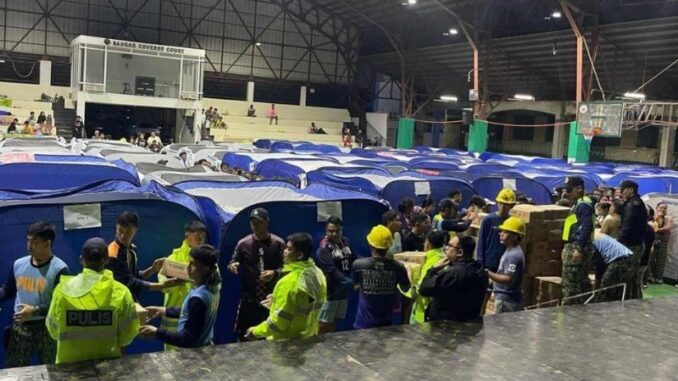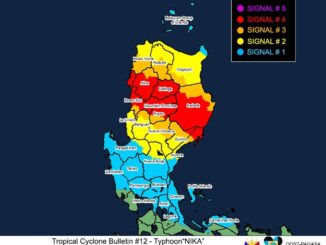
MANILA, Philippines — More than half a million individuals have been displaced by the combined effects of Typhoons Nika, Ofel and Pepito, the National Disaster Risk Reduction Management Council reported on Monday, November 18.
Of the 685,071 displaced persons, at least six in 10 found shelter in evacuation centers, while the remaining 40% sought temporary refuge elsewhere.
The NDRRMC recorded 695,108 people who preemptively left their homes to seek refuge in safer locations. These individuals are from the Ilocos, Cagayan Valley, Central Luzon, Calabarzon, Mimaropa, and Bicol regions, as well as Metro Manila.
This contrasts sharply with the response to tropical cyclones “Kristine” and “Leon,” where only 168,039 individuals evacuated early, leaving 74% of the 617,168 displaced persons to find safety in other locations.
A total of 2,717 evacuation centers were used in response to Typhoons Nika, Ofel and Pepito. This is nearly four times more than the 566 centers utilized during Kristine and Leon, according to the NDRRMC.
The NDRRMC has not reported any deaths or missing persons, only 11 individuals injured. However, President Ferdinand “Bongbong” Marcos has confirmed one fatality due to Typhoon Pepito.
Affected population. While the NDRRMC reported 1.146 million affected individuals, or 295,576 families, the Department of Social Welfare and Development (DSWD) recorded nearly double the figure.
As of 6 a.m., the DSWD estimated that 2.341 million people, equivalent to 634,476 families, experienced the impacts of Typhoons Nika, Ofel and Pepito.
Cost of damages. According to the NDRRMC, a total of 7,838 houses and 54 infrastructures have been assessed as damaged, with the cost of infrastructure damage totaling P469,847,274.
Meanwhile, agricultural damages have amounted to P8.64 million, covering losses sustained by farmers and fisherfolk, including damaged crops, agricultural infrastructure, machinery and equipment, as well as livestock, poultry and fisheries.
Status of roads, bridges and ports. Around 272 roads, 101 bridges and 88 seaports have been affected by Typhoons Nika, Ofel and Pepito.
Of the impacted roads and bridges, 33% have only one passable lane, while 14% are only passable to some vehicles.
As of 8 a.m., a total of 2,889 passengers, 1,175 rolling cargoes and two vessels were stranded at local seaports, with only 15% of the 88 affected seaports remaining operational.
Status of electricity, water and communication. About 41% of the 189 cities and municipalities that have experienced power outages have already been restored.
Three out of the nine cities and municipalities affected by water supply interruptions have also been restored.
However, only 17% of communication lines in the 36 affected cities and municipalities have been reestablished.
How much assistance was used? The DSWD reported that the total cost of humanitarian assistance for the three typhoons has reached P70.788 million.
As of 4 a.m., the agency holds P196.946 million in standby funds, while the total value of available food and non-food items is P2.09 billion.
The Department of Budget and Management recently allocated P875 million to replenish the quick response fund for calamity and disaster relief operations, which had been drained by recovery efforts from successive storms.
Government agencies are continuing their assessment of the situation and validating their data as Typhoon Pepito remains within the Philippine area of responsibility.





Be the first to comment